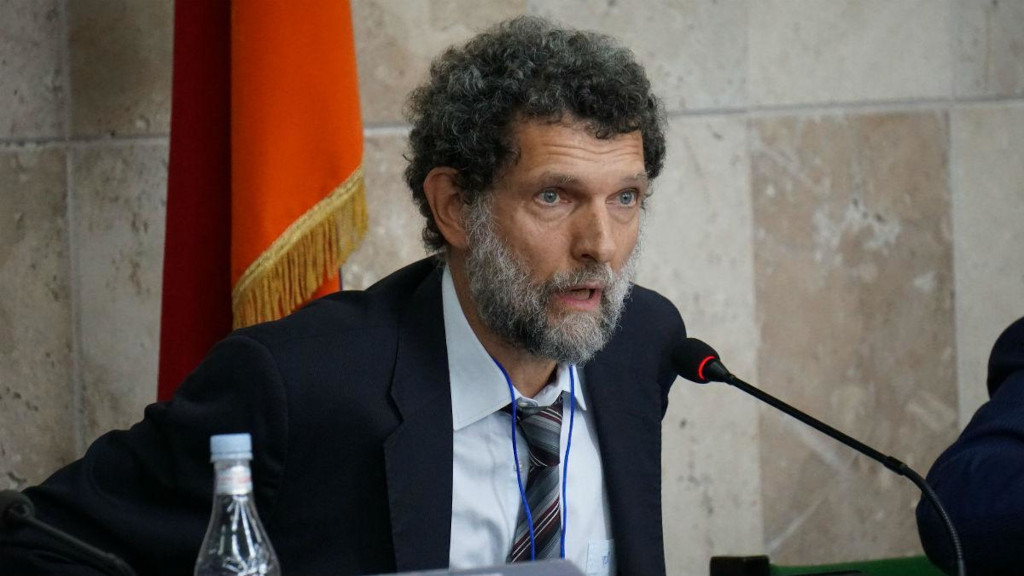The Turkish government has been given extra time, until September 16, by the European Court of Human Rights (ECtHR) to submit its defense concerning the case of businessman and rights defender Osman Kavala, who is still in prison despite previous favorable rulings on Kavala from the court, the Gerçek Gündem news website reported.
Kavala, who has been imprisoned since November 2017 on charges related to the 2013 anti-government Gezi Park protests, was sentenced to life in prison in 2022 for allegedly attempting to overthrow the government of President Recep Tayyip Erdoğan. His conviction, seen as politically motivated by many, was upheld by the Supreme Court of Appeals in September 2023.
Turkey has refused to release Kavala despite a 2019 ECtHR ruling that found his detention was in pursuance of an “ulterior motive,” that of silencing him as a human rights defender. The non-implementation of the ruling prompted the Council of Europe (CoE) Committee of Ministers to launch an infringement procedure against Turkey in February 2022, which is still ongoing.
Kavala’s lawyers filed another application at the ECtHR in January due to his continued incarceration. The court, which examined Kavala’s application on a priority basis, informed Turkey in March about the application and asked the Turkish government to submit its defense to the court by July 16.
Since Turkey said it was unable to present its defense by this date, it asked for extra time, and the court set September 16 as the new deadline for Turkey to make its defense.
The infringement procedure against Turkey could potentially see Ankara expelled from the continent’s leading human rights organization.
Turkey’s judiciary is criticized by international bodies and rights groups for taking orders from the executive branch. Ankara disbarred more than 4,000 judges and prosecutors immediately after an abortive military coup in July 2016 over alleged ties to the faith-based Gülen movement, which it accused of orchestrating the attempted putsch. The movement denies any involvement.
The mass disbarment of members of the judiciary is believed by many to have had a chilling effect on the entire justice system, intimidating the remaining judges and prosecutors into doing the government’s bidding by launching politically motivated investigations into critics.
A leading figure in Turkey’s civil society, 66-year-old Kavala was born in Paris, educated in the UK and ran a cultural center before being thrust to prominence. He was accused of financing the Gezi Park protests against then-prime minister Recep Tayyip Erdoğan’s government in 2013.
The Gezi Park protests began in the summer of 2013 as a reaction to government plans to demolish a park in central İstanbul but quickly escalated into widespread anti-government demonstrations. The protests were met with violent suppression, resulting in the death of 11 demonstrators due to excessive police force.
Kavala’s conviction, along with those of other defendants, has been widely criticized as politically motivated and has drawn significant international condemnation and domestic protest.


